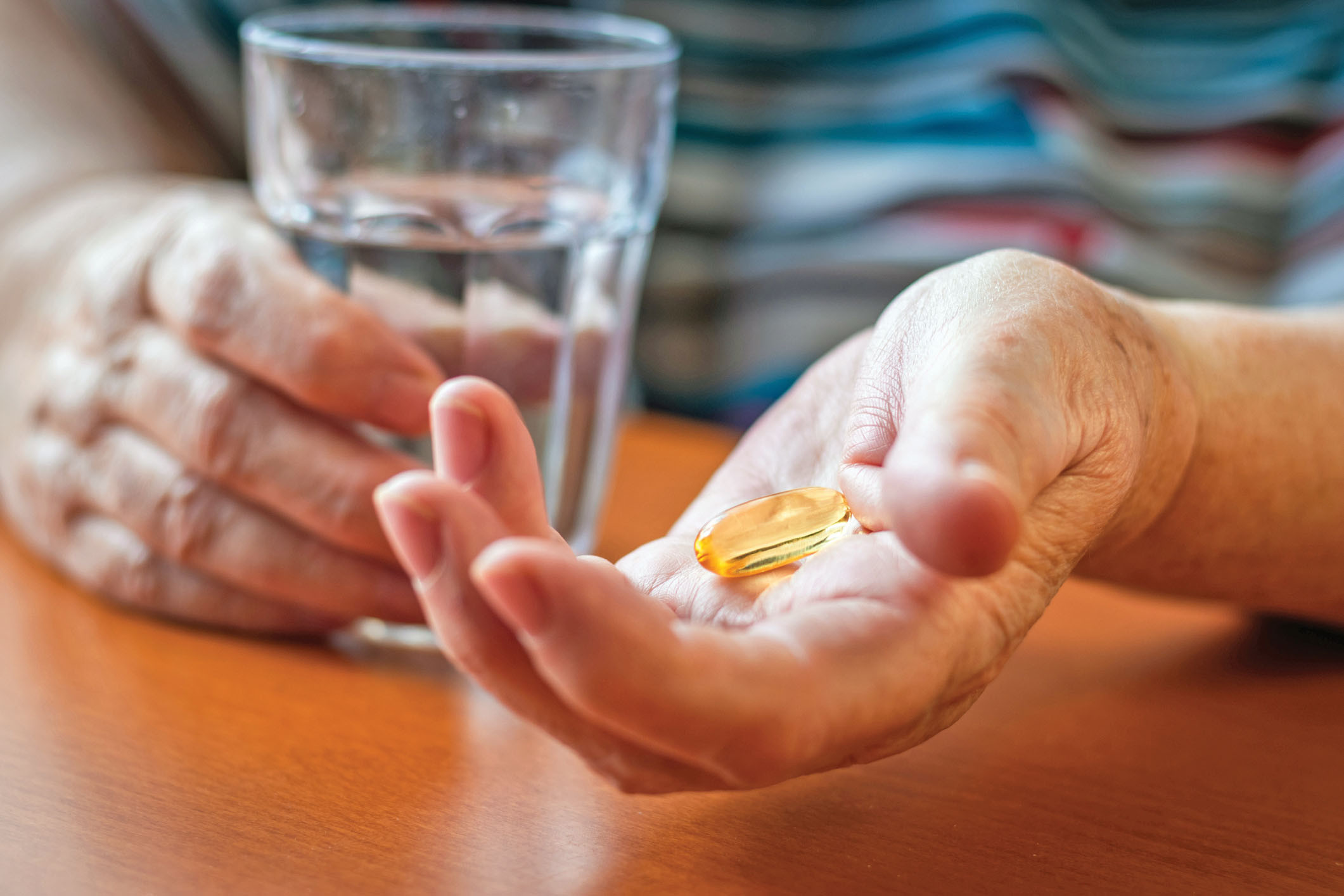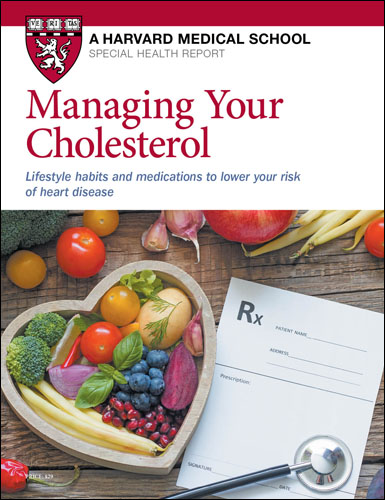Medications to lower triglycerides
Ask the doctor

Q. I've had high triglyceride levels (250 to 280 mg/dL) for years. Because I take a statin to lower my cholesterol, I thought I didn't need to worry. Is that true? I'm trying to follow a healthy diet, but is there anything else I should do to lower my triglycerides?
A. Triglycerides, the most common type of fat in the body, come from fat in foods. But extra calories your body doesn't use — such as those from sugar and alcohol — are also transformed into triglycerides. That's why a healthy diet that limits sugar and refined carbohydrates (such as white bread and white rice) can help lower triglyceride levels. Minimizing alcohol also helps, as does exercising and maintaining a healthy weight.
While it's clear that high LDL (bad) cholesterol increases the risk of a heart attack, there's increasing evidence that triglycerides are important too, even if your LDL is under control. Your triglyceride levels fall into the high range, which is defined as 200 to 499 mg/dL. (A normal level is 149 or lower; 150 to 199 is borderline high; and a value of 500 and higher is considered very high and should be treated with medications to prevent inflammation of the pancreas, called pancreatitis.)
Anyone with a triglyceride level of 150 to 499 should be checked and treated for any underlying health problems that might be to blame, including type 2 diabetes, obesity, a low thyroid level (hypothyroidism), and liver or kidney disease. But if your triglycerides remain high after addressing these issues and making lifestyle changes, medication may be a good idea.
Niacin can lower triglycerides, but the high doses required often cause unpleasant side effects, including flushing and stomach upset. Drugs known as fibrates can drop levels by as much as 50%. But neither drug lowers the risk of heart attacks or strokes when added to a statin.
But a drug made from a highly purified form of EPA (an omega-3 fatty acid found in fish) called icosapent ethyl can. It lowers triglycerides and, when taken with a statin, lowers the risk of heart attack, stroke, and death from cardiac causes by 26% in people with either diabetes or cardiovascular disease. Marketed under the name Vascepa, icosapent ethyl is available as a generic in the United States.
Note that this prescription-only drug is very different from over-the-counter fish oil supplements found in stores and online. Those nonprescription products also contain EPA, but often in combination with DHA (another omega-3 fatty acid), and the amounts are far lower than in the prescription formulation. Also, fish oil supplements aren't regulated for purity or quality control.
Image: © Zbynek Pospisil/Getty Images
About the Author

Deepak L. Bhatt, M.D., M.P.H, Former Editor in Chief, Harvard Heart Letter
Disclaimer:
As a service to our readers, Harvard Health Publishing provides access to our library of archived content. Please note the date of last review or update on all articles.
No content on this site, regardless of date, should ever be used as a substitute for direct medical advice from your doctor or other qualified clinician.
















